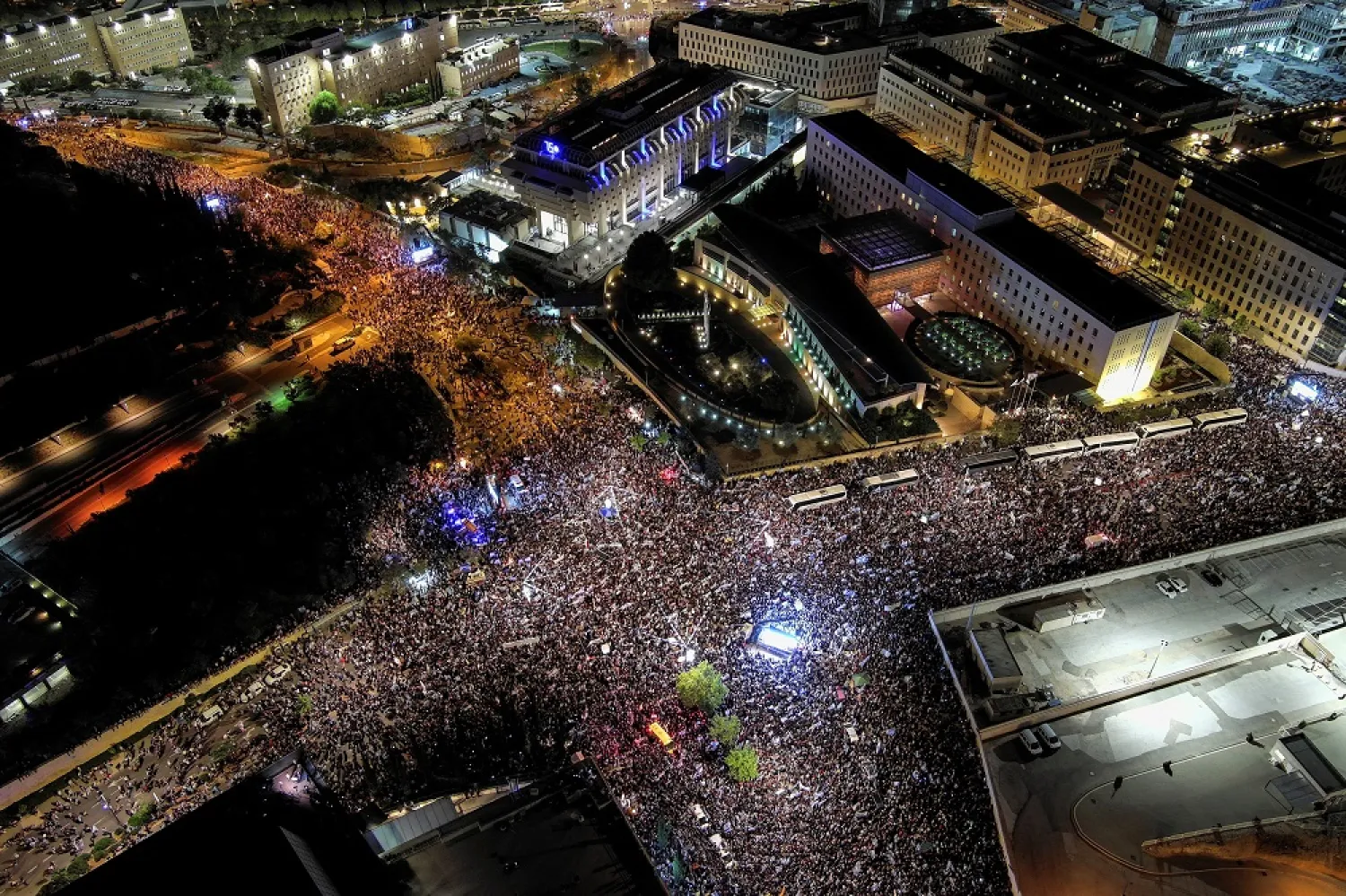Tens of thousands of right-wing Israelis who support a plan by Prime Minister Benjamin Netanyahu's government to overhaul the judiciary flocked to Jerusalem on Thursday to rally for the proposal, which has prompted some of the biggest protests in Israel's history.
After 16 weeks of protests against the overhaul that brought parts of Tel Aviv and Jerusalem to a standstill, Thursday marked a rare mobilization of massive public support for the divisive plan.
Crowds of Israelis transformed a major Jerusalem thoroughfare into a sea of blue and white national flags. Some protesters stomped on a carpet displaying the faces of Israel's Supreme Court president and former attorney general.
“We will not give up,” ultranationalist Finance Minister Bezalel Smotrich told the rally.
“We have the people, they have the media," he said, referring to the government's critics that he accuses of exerting undue influence over the news media.
The masses snaking down Kaplan Street railed against their opponents and chanted slogans in support of the judicial plan, which Netanyahu delayed last month after mass anti-government protests — mainly by secular and liberal Israelis — intensified and even threatened to paralyze the economy.
The anti-overhaul movement also drew legions of pilots and officers in elite military reserve units who threatened not to report for service. High-tech business leaders and former officials also came out against the changes.
Right-wing Israelis — disappointed in the government's failure to push through the legislation before the parliament's recess earlier this month — escalated their demands for Netanyahu's far-right and ultra-Orthodox coalition to fulfill its promises. Israeli media estimated some 80,000 people had gathered in Jerusalem for Thursday's rally — many of them bused in from across the country.
“The people want judicial reform,” the protesters yelled. At the end of his speech, Justice Minister Yariv Levin, who has spearheaded the overhaul push, joined the chant.
A banner onstage read: “The elections will not be stolen from us.”
Supporters of the overhaul argue it is needed to rein in a system of judges who are unelected and overly interventionist in political issues. Netanyahu's coalition of right-wing and religious allies, which took office late last year, captured a majority of 64 seats in the 120-member Knesset.
Opponents contend the overhaul is a power grab that would weaken a system of checks and balances and concentrate authority in the hands of the prime minister and his extremist allies. They also say that Netanyahu has a conflict of interest in trying to reshape the nation’s legal system at a time when he is on trial.
“I am deeply moved by the tremendous support,” Netanyahu wrote on Twitter about Thursday's demonstration.









